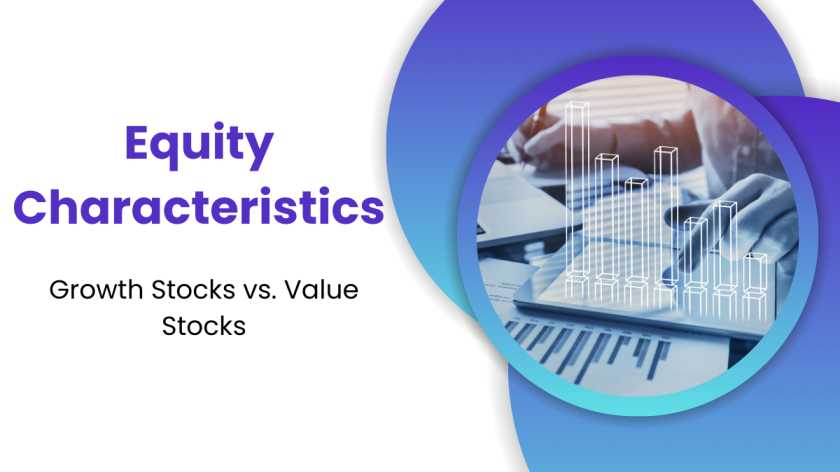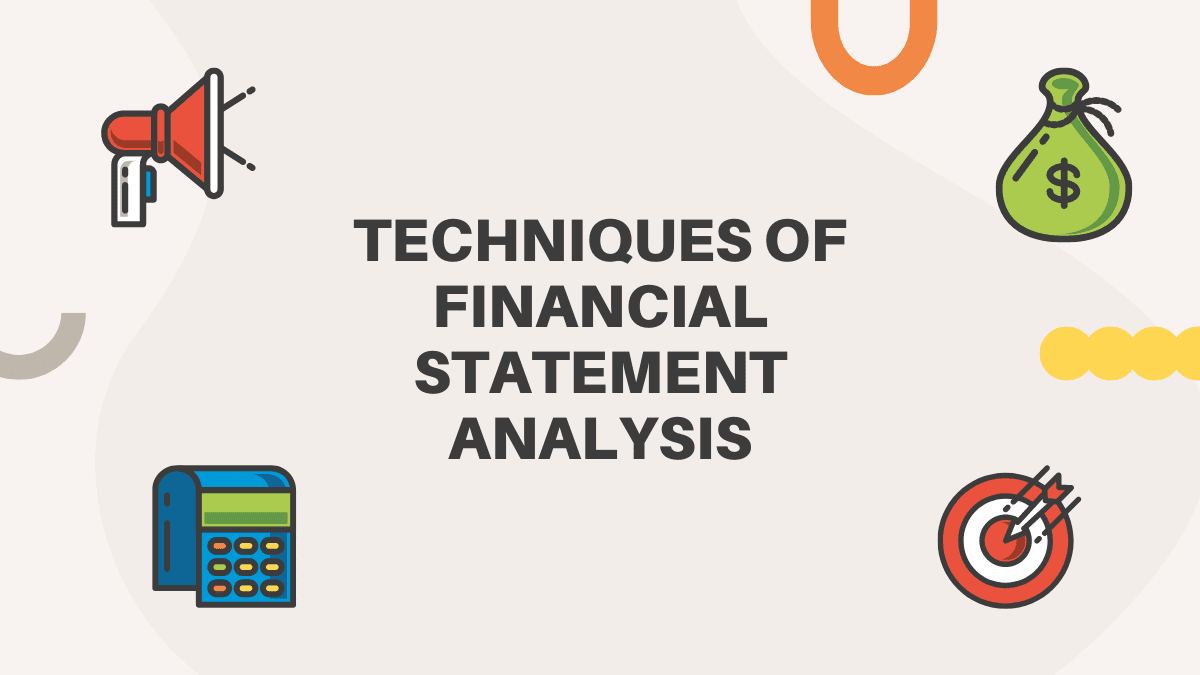Corporate finance is the financial management discipline concerned with the optimal allocation of a firm’s capital. The core objectives of corporate finance encompass the strategic decisions surrounding the acquisition, financing, and deployment of financial resources to maximise shareholder value. This discipline is the cornerstone of a business’s financial health, influencing its growth, profitability and overall market valuation.
Historically, objectives of corporate finance were primarily focused on maximising profits. However, the evolving business landscape and the increasing complexity of financial markets have necessitated a broader perspective. Contemporary corporate finance recognises the importance of balancing profitability with risk management, stakeholder satisfaction, and sustainable growth.
In this article, we will explore the main objectives of corporate finance. We will examine how these objectives have evolved in response to changing economic and market conditions. Specifically, we will delve into the critical roles of shareholder value maximisation, risk mitigation, capital structure optimisation and financial planning in achieving long-term enterprise success.
The Traditional View: Maximising Shareholder Wealth
Shareholder wealth maximisation is the cornerstone of traditional corporate finance. This objective posits that a company’s primary goal should be to increase the value of its shareholders’ investment. This is typically measured by the stock price, which reflects the market’s perception of the company’s future earnings and cash flows.
Advocates of shareholder wealth maximisation argue that it provides a clear and measurable goal for management. By focusing on increasing stock prices, companies are incentivised to make decisions that enhance profitability, efficiency, and growth. This is one of the objectives of corporate finance that aligns the interests of shareholders with those of management, as executive compensation is often tied to stock performance.
Numerous companies have demonstrated the effectiveness of shareholder wealth maximisation. For instance, technology giants like Apple and Amason have consistently delivered exceptional returns to shareholders through innovation, market dominance, and efficient capital allocation. Their focus on maximising shareholder value has driven significant stock price appreciation, benefiting investors.
However, the pursuit of shareholder wealth maximisation is not without its critics. Agency theory highlights the potential conflict of interest between shareholders and management. Managers may prioritise their own interests, such as job security or personal wealth, over maximising shareholder value. This can lead to suboptimal decisions and erode shareholder trust.
Furthermore, an excessive emphasis on short-term profits can hinder long-term value creation. Companies may prioritise cost-cutting measures or aggressive revenue growth strategies that sacrifice investments in research and development, employee development, or sustainable practices. This short-term focus can negatively impact the company’s competitive advantage and overall value over time.
Corporate Finance Principles
The main objectives of corporate finance are directly proportional to maximising shareholder value. Achieving corporate finance goals involves a complex interplay of investment, financing, and dividend decisions.
- The investment principle pertains to the allocation of a company’s resources into projects, assets, or ventures. The crux of investment decisions lies in determining whether a proposed venture will generate returns exceeding the cost of capital. The cost of capital is the minimum return expected by investors for their investment in the company. Tools like net present value (NPV) and internal rate of return (IRR) are employed to evaluate the financial viability of potential investments.
- The financing principle addresses how a company acquires funds to support its operations and growth. This involves determining the optimal mix of debt and equity financing. Debt financing entails borrowing money, which creates a legal obligation to repay with interest. Equity financing involves selling ownership shares in the company. The choice between debt and equity is influenced by factors such as cost of capital, financial risk, and flexibility. A company’s capital structure, the composition of its debt and equity, significantly impacts its overall financial health.
- The dividend principle concerns the distribution of a company’s profits to shareholders. Dividends represent a portion of earnings paid to shareholders. The decision to pay dividends or retain earnings for reinvestment is influenced by factors such as profitability, growth opportunities, and shareholder expectations. Dividend policy significantly impacts a company’s stock price and investor returns.
- Central to corporate finance is the concept of the time value of money. This principle recognises that money available today is worth more than the same amount in the future due to its potential earning capacity. Consequently, future cash flows must be discounted to their present value for accurate valuation.
- Risk and return are intrinsically linked in corporate finance. Higher returns are generally associated with higher levels of risk. Investors demand higher returns for investments with greater uncertainty. Risk management is crucial in corporate finance to protect the company from potential financial losses.
- Cash flow is the lifeblood of a business. It represents the net amount of cash generated and expended during a specific period. Effective cash flow management is essential for meeting financial obligations, investing in growth opportunities, and maintaining liquidity.
- Valuation is the process of determining the intrinsic value of a company or its assets. It involves estimating the present value of future cash flows. Valuation is critical for investment decisions, mergers and acquisitions, and financial analysis.
Corporate finance encompasses a broad range of activities, including capital budgeting, working capital management, risk management, financial planning and forecasting, and mergers and acquisitions. Each of these areas involves specific techniques and analyses to support sound financial decision-making. Ultimately, the overarching objectives of corporate finance always relate to enhancing shareholder value. By making informed investment, financing, and dividend decisions, companies aim to increase profitability, growth, and overall financial performance.
Stakeholder Theory and Corporate Social Responsibility (CSR)
Stakeholder theory posits that a company’s success depends on satisfying the needs and expectations of various stakeholders, not just shareholders. These stakeholders include employees, customers, suppliers, communities, and the environment. This is one of the corporate finance principles that acknowledges the interconnectedness of a business with its broader ecosystem.
Balancing shareholder and stakeholder interests requires careful consideration. While maximising shareholder value remains important, companies must also prioritise the needs of other stakeholders to ensure long-term sustainability. A harmonious relationship with employees, customers, and communities can enhance a company’s reputation, attract talent, and foster loyalty, ultimately contributing to financial success.
Corporate social responsibility (CSR) is a strategic approach that integrates economic, environmental, and social considerations into a company’s operations. By engaging in CSR initiatives, companies demonstrate their commitment to ethical practices, community development, and environmental sustainability. These actions can enhance a company’s brand reputation, attract socially conscious investors, and mitigate risks associated with negative externalities.
Numerous companies have successfully integrated stakeholder interests into their business models. For example, a leading outdoor apparel company that prioritises environmental sustainability and fair labour practices. This commitment has resonated with consumers, driving brand loyalty and financial growth. Similarly, companies like Unilever have embraced sustainable sourcing and inclusive marketing strategies, leading to increased market share and investor confidence.
The growing importance of environmental, social, and governance (ESG) factors has significantly impacted corporate finance. Investors are increasingly considering ESG performance when making investment decisions. Companies with strong ESG profiles often enjoy lower costs of capital, improved access to financing, and enhanced risk management. Therefore, integrating ESG considerations into financial planning and decision-making has become essential for long-term success.
Profitability and Growth: The Dual Pillars of Corporate Finance
Profitability and growth are two important corporate finance goals. While profitability measures a company’s ability to generate earnings, growth reflects its capacity to expand operations and increase market share. These two objectives of corporate finance are interconnected, as profitability provides the financial resources necessary for reinvestment and growth, while growth creates opportunities for increased revenue and market dominance.
Achieving sustainable profitability requires a multifaceted approach. Companies must focus on cost management, revenue enhancement, and operational efficiency. Effective pricing strategies, product differentiation, and lean operations are critical for maximising profitability. Additionally, financial discipline, such as careful capital allocation and working capital management, is essential for maintaining a healthy financial position.
Financial analysis plays a crucial role in driving growth. By scrutinising financial data, companies can identify growth opportunities, assess investment risks, and measure the performance of various initiatives. Techniques such as financial modelling, valuation analysis, and scenario planning help businesses make informed decisions about resource allocation and strategic direction.
Innovation and research and development (R&D) are essential for long-term growth. By investing in new products, technologies, and business models, companies can create competitive advantages and expand into new markets. R&D expenses may appear as costs in the short term, but they can generate significant returns in the form of increased revenue and market share over time.
Numerous companies have demonstrated the ability to achieve both profitability and growth. For example, Apple has consistently delivered strong financial performance while maintaining a reputation for innovation. Amazon, another industry leader, has prioritised growth through strategic acquisitions and investments, resulting in substantial revenue expansion and profitability. These companies exemplify the importance of balancing short-term profitability with long-term growth objectives of corporate finance.
Risk Management: An Essential Component of Corporate Finance
Risk management is a critical component of corporate finance, encompassing the identification, assessment, and mitigation of potential financial threats. These risks can stem from various sources, including market fluctuations, credit defaults, operational failures, and economic downturns. Each type of risk carries the potential to impact a company’s profitability, cash flow, and overall financial stability.
To effectively manage risks, companies employ a range of assessment and mitigation strategies. This involves identifying potential threats, evaluating their likelihood and impact, and developing appropriate response plans. Diversification, hedging, and insurance are common tools used to reduce exposure to specific risks. By proactively addressing potential challenges, companies can enhance their resilience and protect shareholder value.
Insurance plays a crucial role in risk management by transferring the financial burden of potential losses to an insurance provider. By purchasing appropriate insurance coverage, companies can safeguard against unforeseen events such as property damage, liability claims, and business interruptions. Hedging, on the other hand, involves using financial instruments to offset the impact of adverse price movements. This strategy can be particularly valuable for companies exposed to commodity price fluctuations or exchange rate risks.
Effective risk management contributes significantly to corporate value. By mitigating the potential for financial losses, companies can protect their earnings, preserve cash flow, and maintain investor confidence. Additionally, a strong risk management framework can enhance a company’s creditworthiness, leading to lower borrowing costs. Conversely, the failure to manage risks can result in substantial financial losses, damage to reputation, and even bankruptcy.
Numerous companies have demonstrated the importance of risk management through their successful strategies. For example, financial institutions have implemented sophisticated risk models and hedging techniques to navigate complex market environments. Airlines have developed comprehensive insurance programs to protect against catastrophic events. By prioritising risk management, these companies have been able to withstand economic downturns, maintain profitability, and create long-term value for shareholders.
Efficient Resource Allocation: The Foundation of Financial Success
Capital budgeting is the process of evaluating and selecting long-term investment projects. It involves allocating a company’s financial resources to projects that are expected to generate returns exceeding the cost of capital. Effective capital budgeting is one of the main corporate finance principles for maximising shareholder value and ensuring the sustainable growth of a business.
Various capital budgeting techniques such as internal rate of return (IRR), net present value (NPV), payback period and profitability index are employed to assess investment proposals. Each method provides different insights into a project’s financial viability, allowing management to make informed decisions.
Working capital management is another critical aspect of resource allocation. It involves managing a company’s current assets and liabilities to ensure sufficient liquidity and optimise cash flow. Effective working capital management requires balancing inventory levels, accounts receivable, and accounts payable to maintain optimal operating efficiency.
Technology has revolutionised resource allocation by enabling data-driven decision-making and automation. Advanced analytics tools provide insights into resource utilisation, cost-benefit analysis, and performance metrics. Additionally, automation of routine tasks frees up resources for strategic initiatives and innovation.
Many companies have excelled in resource allocation through strategic planning and execution. For example, Walmart’s efficient inventory management and supply chain optimisation have enabled it to achieve significant cost savings and improve profitability. Similarly, Amason’s investment in technology and infrastructure has fueled its rapid growth and market dominance. These companies demonstrate the power of effective resource allocation in driving financial success.
The Role of Financial Leverage: Balancing Risk and Return
Financial leverage refers to the use of debt to amplify the returns on equity. By borrowing money, companies can invest in projects that generate returns exceeding the cost of debt, thereby increasing overall profitability. However, financial leverage also introduces financial risk, as the obligation to repay debt remains regardless of the project’s success.
Determining the optimal capital structure involves finding the right balance between debt and equity financing. This balance depends on various factors, including a company’s industry, growth stage, profitability, and risk tolerance. A well-structured capital structure can enhance shareholder value by maximising the tax benefits of debt, improving financial flexibility, and signalling market confidence.
Debt and equity financing offer distinct advantages and disadvantages. Debt provides tax shields and can accelerate growth, but it also increases financial risk. Equity financing dilutes ownership but strengthens the company’s financial position. The optimal mix of debt and equity depends on a company’s specific circumstances and strategic corporate finance goals.
Interest rates play a crucial role in financial leverage. When interest rates are low, companies may be incentivised to increase their debt levels to take advantage of cheaper financing. Conversely, rising interest rates can increase the cost of debt, reducing the attractiveness of financial leverage. Effective interest rate management is essential to optimise the benefits of financial leverage while mitigating risks.
Numerous companies have successfully employed financial leverage to enhance shareholder value. For example, many technology companies have utilised debt to fund research and development initiatives, accelerating growth and market penetration. However, excessive leverage can lead to financial distress, as seen in some cases of highly leveraged buyouts (LBOs). Therefore, a prudent approach to financial leverage is essential for long-term success.
The Future of Corporate Finance: Emerging Trends and Challenges
Digital transformation is profoundly reshaping corporate finance. Automation, data analytics, and cloud computing are streamlining financial processes, improving efficiency, and enhancing decision-making. The shift towards digital platforms is also transforming how companies interact with customers, suppliers, and investors.
Artificial intelligence (AI) and machine learning are revolutionising financial analysis and forecasting. These technologies can process vast amounts of data to identify patterns, predict trends, and optimise financial strategies. AI-powered tools are also being used to detect fraud, assess credit risk, and automate routine tasks.
Climate chane and sustainability pose significant challenges and opportunities for corporate finance. Investors, regulators, and consumers increasingly demand that companies address environmental and social impacts. Corporate finance professionals must incorporate ESG (Environmental, Social, and Governance) factors into their decision-making and risk management processes.
Financial literacy and education are essential for the future of corporate finance. A well-informed workforce is better equipped to make sound financial decisions and contribute to a company’s success. Investing in financial education can enhance employee engagement, reduce financial risks, and improve overall organisational performance.
The future of corporate finance is likely to focus on creating long-term value while balancing financial performance with societal and environmental impact. The objectives of corporate finance may include maximising shareholder returns, minimising environmental footprint, promoting social responsibility, and fostering innovation. Corporate finance professionals will need to adapt to these evolving priorities and develop new skills to navigate the complexities of the future.
Wrapping Up
Corporate finance is a multifaceted discipline encompassing a range of objectives aimed at maximising enterprise value. Traditionally focused on shareholder wealth maximisation, the field has evolved to encompass a broader spectrum of considerations. Profitability, growth, risk management, efficient resource allocation and financial leverage are all critical components of a successful corporate finance strategy.
A holistic approach to corporate finance is essential for long-term success. Balancing the interests of shareholders, stakeholders, and the broader community is increasingly important in today’s complex business environment. Integrating environmental, social, and governance (ESG) factors into financial decision-making is no longer optional but a strategic imperative.
The dynamic nature of the business landscape necessitates a continuous evolution of the objectives of corporate finance. Emerging trends such as digital transformation, artificial intelligence, and climate change are reshaping the financial function. Companies must adapt to these changes and develop innovative strategies to thrive in the future.
To achieve sustained success, corporate finance professionals must possess a deep understanding of financial principles, coupled with a strategic mindset and strong business acumen. By embracing a holistic perspective and staying abreast of industry trends, finance leaders can play a pivotal role in driving organisational growth and creating long-term value for all stakeholders.
If you wish to become a corporate finance expert, a financial modeling certification can definitely help you out. Enrol in Imarticus Learning’s Postgraduate Financial Analysis Program to become a financial analyst or a holistic finance professional.
Frequently Asked Questions
What is the primary objective of corporate finance?
Traditionally, maximising shareholder wealth was the primary objective. However, the modern objectives of corporate finance encompass a broader perspective, including stakeholder satisfaction, sustainable growth, and risk management.
How does corporate social responsibility (CSR) relate to corporate finance?
CSR is increasingly integrated into the objectives of corporate finance. Companies recognise that social and environmental factors impact financial performance. By prioritising CSR, businesses can enhance their reputation, attract investors, and mitigate risks.
What is the role of risk management in corporate finance?
Risk management is crucial for achieving the objectives of corporate finance. It involves identifying, assessing, and mitigating potential threats to financial stability. Effective risk management protects company value, enhances investor confidence, and supports long-term growth.
How does capital budgeting contribute to corporate finance objectives?
Capital budgeting is a vital tool for allocating resources effectively. By carefully evaluating investment opportunities, companies can maximise returns, optimise growth, and create sustainable value for shareholders and stakeholders.









